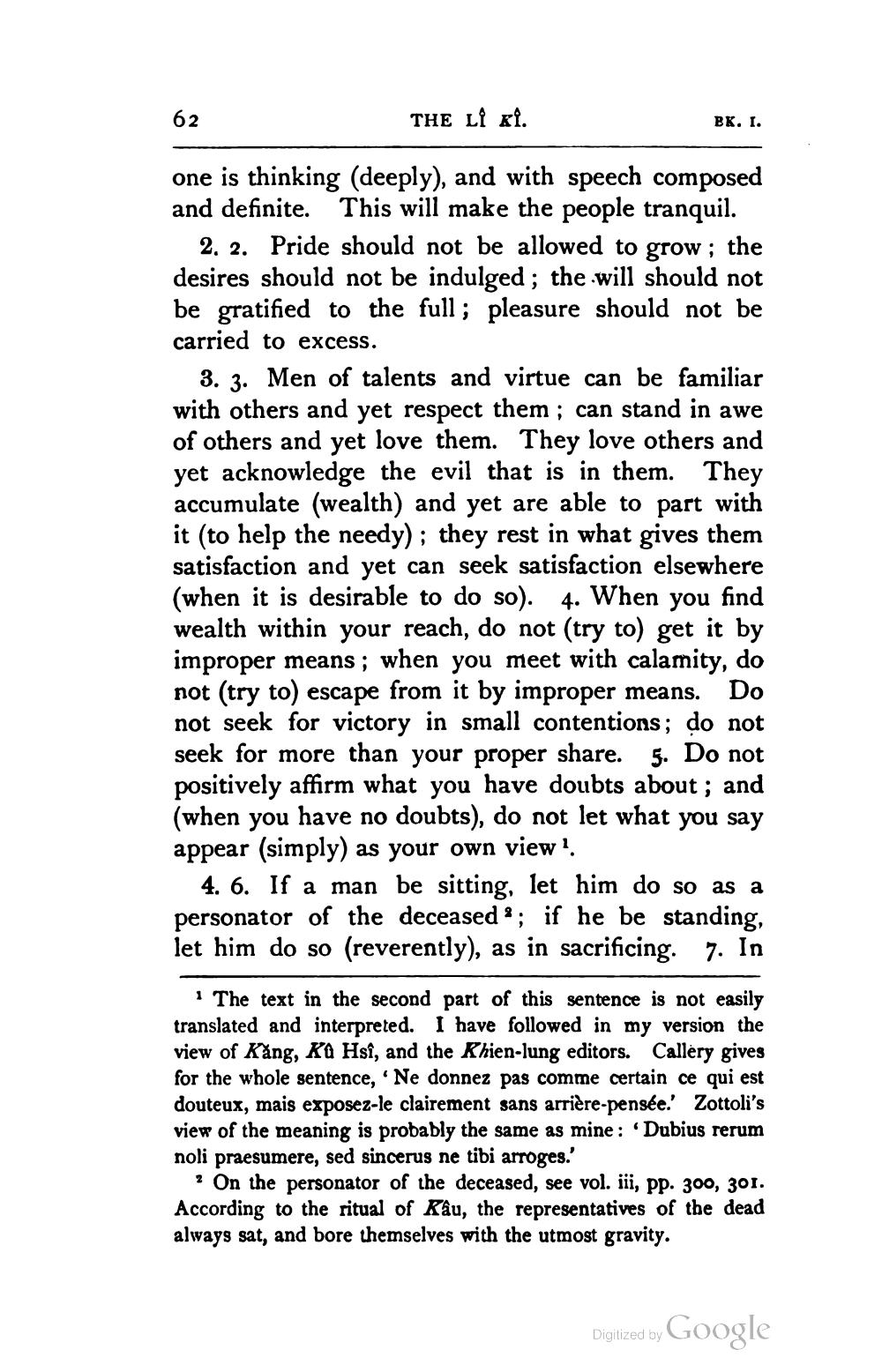________________
62
THE Lİ Kİ.
one is thinking (deeply), and with speech composed and definite. This will make the people tranquil.
BK. I.
2. 2. Pride should not be allowed to grow; the desires should not be indulged; the will should not be gratified to the full; pleasure should not be carried to excess.
3. 3. Men of talents and virtue can be familiar with others and yet respect them; can stand in awe of others and yet love them. They love others and yet acknowledge the evil that is in them. They accumulate (wealth) and yet are able to part with it (to help the needy); they rest in what gives them satisfaction and yet can seek satisfaction elsewhere (when it is desirable to do so). 4. When you find wealth within your reach, do not (try to) get it by improper means; when you meet with calamity, do not (try to) escape from it by improper means. Do not seek for victory in small contentions; do not seek for more than your proper share. 5. Do not positively affirm what you have doubts about; and (when you have no doubts), do not let what you say appear (simply) as your own view1.
4. 6. If a man be sitting, let him do so as a personator of the deceased; if he be standing, let him do so (reverently), as in sacrificing. 7. In
The text in the second part of this sentence is not easily translated and interpreted. I have followed in my version the view of Kăng, Kû Hsî, and the Khien-lung editors. Callery gives for the whole sentence, 'Ne donnez pas comme certain ce qui est douteux, mais exposez-le clairement sans arrière-pensée.' Zottoli's view of the meaning is probably the same as mine: 'Dubius rerum noli praesumere, sed sincerus ne tibi arroges.'
2 On the personator of the deceased, see vol. iii, pp. 300, 301. According to the ritual of Kâu, the representatives of the dead always sat, and bore themselves with the utmost gravity.
Digitized by
Google




